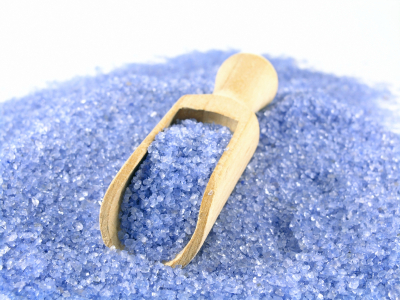
Agency intends to prohibit the sale of synthetic stimulants, at least temporarily.
In response to an alarming report on the rising use of synthetic stimulants, the Drug Enforcement Administration (DEA) published a notice earlier this month announcing its intent to prohibit the possession and sale of three substances that allegedly cause psychological effects similar to methamphetamine, cocaine, and LSD.
The DEA intends to place mephedrone, methylone, and MDPV into Schedule I of the Controlled Substance Act on a temporary basis for one year to “avoid an imminent hazard to the public safety.”
Because these three substances have not been approved for “human consumption” by the Food and Drug Administration, they are sold as bath salts or plant food under exotic names like “Purple Wave” and “Vanilla Sky.” According to the agency’s notice, these substances, which lack any recognized therapeutic use, can cause not only “disorientation” and “reduced motor control,” but also long-term physical and psychological harm.
At least thirty-three states, including Pennsylvania and New York, have scheduled or enacted legislation regulating the use of these synthetic stimulants. The DEA’s notice constitutes a national effort to ban these substances temporarily while the DEA and the Department of Health and Human Services consider the possibility of a permanent ban.
The DEA can issue a final order for the ban on October 11, 2011. This final order will outline the regulatory control of the substances, including any civil or criminal penalties for their manufacture, distribution, and possession.



